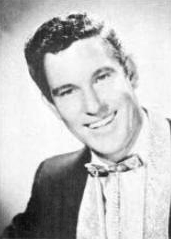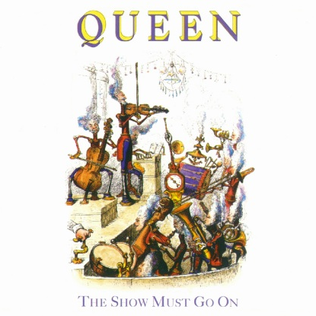Related Research Articles

"Bohemian Rhapsody" is a song by the British rock band Queen, released as the lead single from their fourth album, A Night at the Opera (1975). Written by lead singer Freddie Mercury, the song is a six-minute suite, notable for its lack of a refraining chorus and consisting of several sections: an intro, a ballad segment, an operatic passage, a hard rock part and a reflective coda. It is one of the few progressive rock songs of the 1970s to achieve widespread commercial success and appeal to a mainstream audience.

"Crazy Little Thing Called Love" is a song by the British rock band Queen. Written by Freddie Mercury in 1979, the track is included on their 1980 album The Game, and also appears on the band's compilation album Greatest Hits in 1981. The song peaked at number two in the UK Singles Chart in 1979, becoming the group's first number-one single on the Billboard Hot 100 in the US in 1980, remaining there for four consecutive weeks. It topped the Australian ARIA Charts for seven weeks. It was the band's final single release of the 1970s.

Frederick Segrest, known professionally as Freddie Hart, was an American country musician and songwriter best known for his chart-topping country song and lone pop hit "Easy Loving," which won the Country Music Association Song of the Year award in 1971 and 1972.
"Blue Moon" is a popular song written by Richard Rodgers and Lorenz Hart in 1934 that has become a standard ballad. Early recordings included those by Connee Boswell and by Al Bowlly in 1935. The song was a hit twice in 1949, with successful recordings in the U.S. by Billy Eckstine and Mel Tormé.

"Don't Stop Me Now" is a song by the British rock band Queen featured on their 1978 album Jazz that was released as a single in 1979. Written by lead singer Freddie Mercury, it was recorded in August 1978 at Super Bear Studios in Berre-les-Alpes (Alpes-Maritimes), France, and is the twelfth track on the album.

"(You Make Me Feel Like) A Natural Woman" is a 1967 single released by American soul singer Aretha Franklin on the Atlantic label. The words were written by Gerry Goffin from an idea by Atlantic producer Jerry Wexler, and the music was composed by Carole King. Written for Franklin, the record was a big hit reaching number 8 on the Billboard Hot 100, and became one of her signature songs. It made history in the UK singles chart a week after her death, finally becoming a hit almost 51 years after it was first released entering at #79. Franklin also included a live recording on the album Aretha in Paris in 1968.

"The Show Must Go On" is a song by British rock band Queen, featured as the twelfth and final track on their 1991 album, Innuendo. It is credited to Queen, but written mainly by Brian May. The song chronicles the effort of frontman Freddie Mercury continuing to perform despite approaching the end of his life, although his diagnosis with HIV/AIDS had not yet been made public in spite of ongoing media speculation claiming that he was seriously ill. When the band recorded the song in 1990, Mercury's condition had deteriorated to the point that May had concerns as to whether he was physically capable of singing it. May recalls; "I said, 'Fred, I don't know if this is going to be possible to sing.' And he went, 'I'll fucking do it, darling'—vodka down—and went in and killed it, completely lacerated that vocal".

How Can I Unlove You is an album by country music singer Lynn Anderson, released in 1971.

I Don't Care is an album by Buck Owens and his Buckaroos, released in 1964. It reached Number one on the Billboard Country charts and Number 135 on the Pop Albums charts. The single "I Don't Care" spent six weeks at number one.

"She's All I Got" is a song written by Gary U.S. Bonds and Jerry Williams Jr. It has been recorded by several artists. The first version, released in 1971 by Freddie North, was a Top 40 U.S. pop hit, and a version by Johnny Paycheck was a number 2 U.S. country hit that same year. A second country music version was released on Conway Twitty's 1972 Decca LP I Can't See Me Without You. There was also a version titled "He's All I Got" that was on Tanya Tucker's 1972 album Delta Dawn. Yet another cover titled "Don't Take Her She's All I've Got" was released by Tracy Byrd, whose version reached number 4 on the U.S. and Canadian country singles charts. Co-author Jerry Williams Jr., aka Swamp Dogg, released his own version on his 2020 album Sorry You Couldn’t Make It.
"Here Comes Honey Again" is a 1971 single by Sonny James written by James and Carole Smith. "Here Comes Honey Again" was the last of sixteen, number one country hits in a row for Sonny James. His next release, his remake of "Only Love Can Break a Heart", would peak at number two on country charts. "Here Comes Honey Again" would stay at number one for a single week and spend a total of fourteen weeks on the country chart.
"Trip to Heaven" is a 1973 single by Freddie Hart and the Heartbeats. "Trip to Heaven" was Freddie Hart's sixth and final number one on the country chart. The single stayed at number one for a single week and spent a total of thirteen weeks on the country chart.
"Super Kind of Woman" is a 1973 single by Freddie Hart and the Heartbeats. "Super Kind of Woman" was Freddie Hart's fifth number one on the country charts. The single stayed at number one for a single week and spent twelve weeks on the country chart.
"My Hang-Up Is You" is a 1972 single by Freddie Hart and the Heartbeats. "My Hang-Up Is You" was Hart's second number one on the U.S. country singles chart. The single stayed at number one for six weeks and spent a total of eighteen weeks on the chart.
"You Are the Song (Inside of Me)" is a single by American country music artist Freddie Hart. Released in January 1976, it was the third single from his album The First Time. The song peaked at number 11 on the Billboard Hot Country Singles chart. It also reached number 1 on the RPM Country Tracks chart in Canada.
Paul Laurence is an American songwriter, producer and keyboardist. He had several number one R&B hits Freddie Jackson's "Rock Me Tonight ," "Jam Tonight," "Tasty Love," "Hey Lover," "Do Me Again"; Stephanie Mills' "(You're Putting) A Rush on Me"; and Meli'sa Morgan's "Do Me Baby." His other credits include Evelyn King's number one R&B hits "I'm in Love," "Love Come Down," as well as hits by "I'm in Love" Lillo Thomas' "(You're A) Good Girl," "Your Love's Got a Hold on Me," "Settle Down," "Sexy Girl," "Wanna Make Love ".
References
- ↑ Whitburn, Joel (2004). The Billboard Book Of Top 40 Country Hits: 1944-2006, Second edition. Record Research. p. 154.